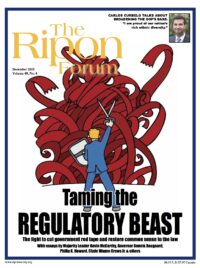 When people around the country think about South Dakota, the first image that comes to mind is probably Mount Rushmore. Of course, we’re proud to be the home of Gutzon Borglum’s masterpiece, but in truth we are much more than the stone-carved presidential tribute. South Dakota is a great place to do business.
When people around the country think about South Dakota, the first image that comes to mind is probably Mount Rushmore. Of course, we’re proud to be the home of Gutzon Borglum’s masterpiece, but in truth we are much more than the stone-carved presidential tribute. South Dakota is a great place to do business.
But don’t just take it from me; as Governor, it’s my job to promote South Dakota. Read what others are saying.
A number of independent groups who conduct state-by-state studies are rating South Dakota at the top. Last month, the U.S. Chamber of Commerce Foundation, once again, named South Dakota’s business climate best of all the states. Earlier this year, CNBC named us no. 2 in the nation for business friendliness. We ranked second in the Tax Foundations’ State Business Tax Climate Index. We also ranked first in the Small Business & Entrepreneurship Council’s 2014 Small Business Policy Index.
Our business friendliness is in part a result of the financial stewardship exercised by governors and legislators over the last century. Since we became a state in 1889, the South Dakota Legislature has balanced the budget every year. We don’t do it with accounting gimmicks, either. We don’t push one year’s expense into the next. We don’t use one-time windfalls to fund ongoing expenses. We never issue general obligation bonds.
In my first term as governor, I started asking state agencies to identify unnecessary and complex laws and regulations that could be repealed.
Many other states are required by law to balance their budgets also. But far too many of those other states achieve that “balance” by deferring their pension contributions, or by borrowing. These states have long-term liabilities – unfunded pension obligations and large general obligation liabilities. In South Dakota, we have neither of those things. Our state’s pension is more than 100 percent funded, and our per-capita tax supported debt is among the lowest in the nation. Other states will eventually be forced to confront those liabilities – probably at the expense of entrepreneurs and businesses.
Private enterprise is seeing success in South Dakota because we believe in allowing businesses to prosper. We have no corporate income tax, no personal income tax, no business inventory tax, no personal property tax and no inheritance tax. This puts more money in the pockets of our businesses and citizens, creating a more favorable environment for growth.
Perhaps most importantly, we don’t overregulate those who do business here.
In 1913, South Dakota Governor Robert S. Vessey said in his State of the State address, “It is my conviction, and in it I am not alone, that the tendency of very many legislative bodies is toward too many rather than too few new laws and I again offer the oft-repeated statement that there is a demand for the reduction and curtailment of the amount of legislation biennially passed by the Legislature and placed among our laws.”
Governor Vessey was right. It’s the nature of government to add to the body of laws. When someone is running for office, others tend to ask, “If elected, what will you do?” Elected officials sometimes take that to mean, “What law will you pass?” And we sometimes measure productivity by the number of bills that we pass.
With laws, more isn’t necessarily better. Laws should be clear, concise, and easy to follow. Government shouldn’t place unnecessary hurdles before our citizens or entrepreneurs, and things shouldn’t be overly complicated for people who are trying to follow the law.
That’s why, a few years ago, I began a red tape review. In my first term as governor, I started asking state agencies to identify unnecessary and complex laws and regulations that could be repealed. In 2012, we introduced our first round of “repealer bills.”
Over the last few years, legislators have been supportive of these bills and have even introduced their own red tape bills. In the last legislative session alone, we repealed 235 sections of law and 90 sections of administrative rules. In total, we have eliminated over 4,000 sections of law and regulations – which amounts to a total of more than 450,000 words that have been repealed.
In total, we have eliminated over 4,000 sections of law and regulations – which amounts to a total of more than 450,000 words that have been repealed.
We’ve repealed outdated provisions dealing with a wide range of subjects, from petroleum products, to county prisoners, to the federal census, to traction engines, to the medical department of the National Guard, and more.
Our efforts to cut red tape don’t usually generate a lot of headlines, but they’re important. Americans are frustrated with government’s increasing tendency to become involved with small details of our daily lives. Business owners are trying to create jobs, farmers and ranchers are trying to stay in operation, and families are trying to make ends meet. It can be hard for people to achieve these things when a government imposes unnecessary and overly-burdensome rules without regard for how those regulations affect individuals.
In South Dakota, we are making it easier for our citizens to know and obey our laws. We understand that businesses need to be able to plan for the long term. When considering moving or expanding, they need stability and certainty. They need to know that government won’t get in their way. That’s what we are striving to offer here in South Dakota.
Dennis Daugaard is the 32nd Governor of South Dakota. He was elected in 2010.




